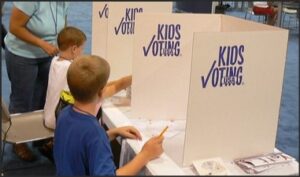Governor Glenn Youngkin had an opportunity to withdraw his big-footed amendment to a bill that would have moved the election date of the Loudoun County School Board from 2022 to 2023 and vacate the nine board seats for a new election. The original bill sought only to stagger the terms of five of the seats. Now, rejected by vote of Democrats in the senate, the Governor has the choice of vetoing the original bill or signing it.
Whichever choice is made, it is not likely to diminish the feral fever that has enveloped school board meetings nor will it appease the bloodlust outrage stoked during the campaign.
Passage of the proposed amendment rested, in part, upon the Dillon Rule, a judicial doctrine from the 1800s which provides that a local jurisdiction may exercise only what authority is conferred by the parent state. This principle, in turn, is mirrored by another dominant value that has guided educational policy for centuries called in loco parentis (ILP) or in place of the parent. Historically, as population grew and shifted from agrarian settings to urban and suburban ones with enhanced employment opportunities, the education of youth was entrusted to a public school system with professional personnel.
While withdrawal of the amendment might have demonstrated statesmanship, a quality not yet overtly evidenced in the new administration, there is an elegant and attractive solution that would serve the long-term interests of public education in the Commonwealth: a legislative measure to authorize counties to establish the voting age in non-federal state and local elections at not lower than twelve years of age.
This derogation of the Dillon Rule is not as audacious as it may first appear. Recall that one of the governor’s sons attempted to vote in the November 2020 election on two occasions. Thus, the chief of state has had personal experience with the exuberance of youth for participation in the voting franchise.
Enfranchisement of a cohort of citizens who are the front-line consumers and customers of public education would create a voice and channel to shape the debates about CRT, DEI, school books and related issues that presently confound those who can vote. ILP is essentially an exclusionary value that assumes youth are not capable of determining what is in their own best interests. That assumption, in contemporary America, may not be as rigid or firm as was once believed.
In addition, the current architecture and sophistication of local jurisdictions has matured well beyond the fears and reservations inherent in the Dillon Rule with respect to their competence and fidelity to their residents and dedication to service. Such progress has received recognition nationally with suffrage for women and eighteen-year-olds and the direct election of US Senators, for example, once unthinkable, now practice.
In the Commonwealth, a 12-year-old may be employed in limited circumstances and be a page in the General Assembly. A 14-year-old youth can be tried in court as an adult or be employed for wages. A 16-year-old qualifies for driving and marriage licenses as well as emancipation. A 12-year-old will have experienced about eight years of mandated education, exposed to numerous teachers and administrators as well as text and school books. These experiences are indicators of potential and they are probably no less than the sum of that brought to the ballot box by presently enfranchised voters, a portion of whom are not parents of school agers. Literacy tests are no longer required.
While there are some who persist in the belief that the brains of youth are not fully formed to be able to exercise the responsibility for their own lives much less vote in elections, that canard ignores the conspiracy utterances of far too many elected officials and candidates presently on the scene. Psychological litmus tests for office have not been established nor for voting.
Disenfranchisement of youth from participation in voting is primarily nostalgic and not rationally parsed. The nation’s traditional policy for public education acknowledges that public education is to be free, taught by trained professionals, to function in the creation of an informed citizenry capable of engaging in productive employment and enhancing its social mobility.
The governor has an opportunity to advance democracy and public education in a single leap and reflect the personal values he has occasionally postulated, converting a minor loss into a major accomplishment.
Jim McCarthy is a retired New York City attorney now living in Virginia.


Leave a Reply
You must be logged in to post a comment.